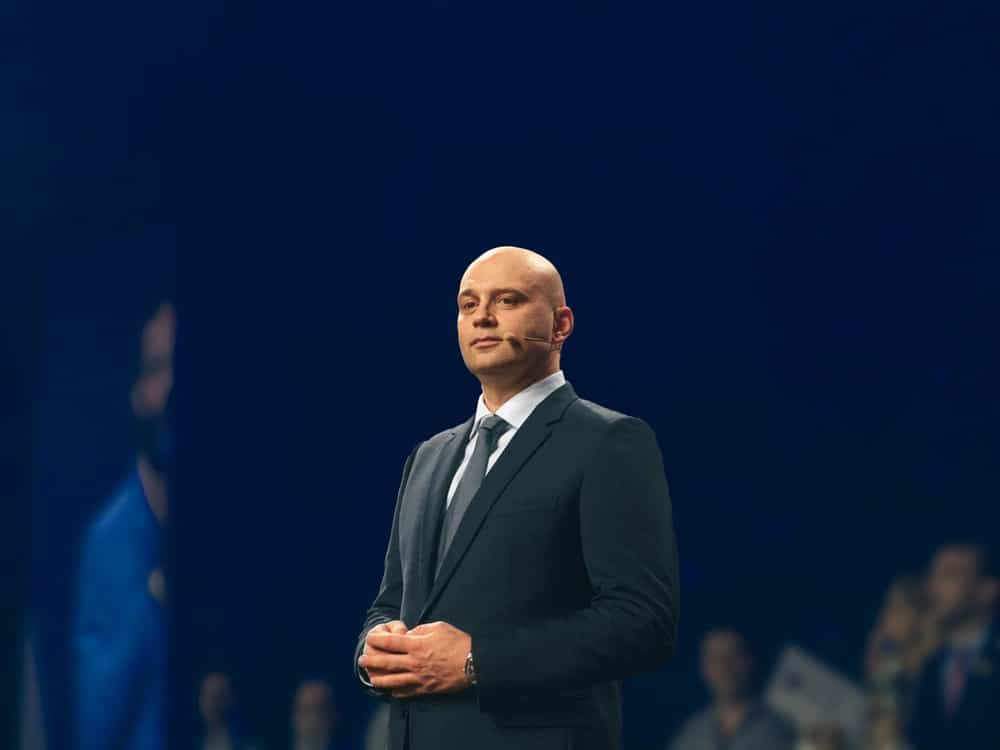Leadership in a Changing World: Lessons from Alex Reinhardt’s Academy

In today’s fast-changing world, leadership hinges on the ability to adapt quickly and motivate others. Adaptability emerges as the cornerstone quality of effective leadership, enabling individuals to pivot swiftly, foster innovation, and cultivate resilience in the face of adversity. Entrepreneur and investor Alex Reinhardt says leadership isn’t something you’re born with, it’s something you develop through practice. By doing simple exercises every day, anyone can become a better leader and make a positive impact on their team and community, especially when things are uncertain.
About Alex Reinhardt
Alex Reinhardt is a successful entrepreneur and investor who has helped many startups get funding totaling over 500 million euros. He’s been involved in more than 20 projects in areas like technology, finance, and education. He was included in the list of the most influential people in the blockchain industry by Entrepreneur. Reinhardt started his own academy to help people succeed in any field, focusing on leadership skills. Using his experience, he teaches the key skills needed for business success. The academy offers free programs covering motivation, self-control, positive thinking, and strategic planning, which are crucial in today’s fast-paced business world. His courses educate how to think strategically, lead effectively, and handle the challenges of starting and growing a business, making their entrepreneurial dreams come true.
Reinhardt’s Vision of Success: How to become a leader?
Alex Reinhardt suggests setting a clear goal and concentrating on smaller steps to reach it. “By visualizing success, you are fooling your brain a little. Therefore, regularly imagine yourself smoothly and surely moving towards your goal and achieving the prefect result. Be sure to complement the picture with physical sensations! Smells, sounds, feelings, emotions, and sensations – everything that you would experience and what you would be surrounded by, having already arrived at the goal,” Reinhardt wrote in his book entitled “You are Number One”.
He also suggests avoiding negative emotions that can hinder progress. Reinhardt advises to list your strengths and weaknesses, but warns against being too hard on yourself. Dwelling on your weaknesses can hold you back from reaching your goals.
According to Reinhardt, we often listen to our inner critic who acts as a prosecutor on a trial blaming ourselves for mistakes instead of supporting and encouraging. To silence your inner critic, Reinhardt recommends a self-conducted trial where you play both the defender and the accuser. Start by jotting down all your negative thoughts about yourself, then ask, “Do these thoughts actually help me in life, and how?” Next, grab another sheet of paper and list all your strengths, elaborating on each one in detail. This forms the basis of your defense. Following this plan, you’ll draft an essay presenting yourself as the defense attorney in court, where you’re being tried as an individual. This task is challenging, as Reinhardt points out—it’s harder than self-criticism because we’re more accustomed to criticizing ourselves than praising.
When it comes to public events, it may be challenging at first to act as a leader. In these cases, Reinhardt suggests rather acting or playing a leader than being such. “Even if you don’t feel confident, this does not prevent you from creating an image of a self-confident person and
holding yourself together, for example, at public events. Remember, people do not see us as we see ourselves. Try portraying confidence. Act as if you had already worked your self-esteem and shine in all its glory. You can easily convince others, and from there it is just one step left to convince yourself. Perhaps at first, you will at first think that you look ridiculous, but do not stop! This is a process, not a momentary event. Our behavior changes our mindset,” continues Reinhardt.
Reinhardt’s Approach to Leadership
The distinction in Reinhardt’s approach compared to others is that he doesn’t suggest abandoning emotions altogether, but rather focusing on positive ones that nurture psychological well-being.
According to Reinhardt, we should see change and uncertainty as opportunities rather than obstacles. This mindset encourages exploring new ideas and solutions, fostering growth even during tough times. Moreover, a leader loves to live in a constantly changing environment. He suggests letting go of the idea that there’s a stable endpoint and embracing the constant changes in our environment. Effective leaders understand that they need to adjust plans continuously, adopting new technologies and strategies to stay competitive.
To achieve this, Reinhardt recommends focusing on strategic planning, leading teams, making financial decisions, and restructuring operations. A leader must lead by example, showing respect, acceptance, and a willingness to help others. A leader cannot be regarded as such unless he leads his team by personal example. Leaders stand out through their positive outlook and their ability to demonstrate how to handle tough situations firsthand. A leader’s attitude greatly influences the morale and productivity of their team. Through maintaining positivity and showing determination, honesty, and hard work, leaders can inspire those around them to achieve great goals together.
Have you read?
The Evolving Landscape of the C-Suite: Navigating Complexity with Precision.
Petr Aven: Harmonizing Economics, Philanthropy, and Art.
Your Pizza Perspective: 6 Things African and Western Leaders Can Learn From Each Other.
Recovering from Grief with Dr. Lenore Matthew, a Young Widow and Intuitive Academic.
Can Mindfulness Transform Your Life? Keri Port Says Yes.
Bring the best of the CEOWORLD magazine's global journalism to audiences in the United States and around the world. - Add CEOWORLD magazine to your Google News feed.
Follow CEOWORLD magazine headlines on: Google News, LinkedIn, Twitter, and Facebook.
Copyright 2025 The CEOWORLD magazine. All rights reserved. This material (and any extract from it) must not be copied, redistributed or placed on any website, without CEOWORLD magazine' prior written consent. For media queries, please contact: info@ceoworld.biz








